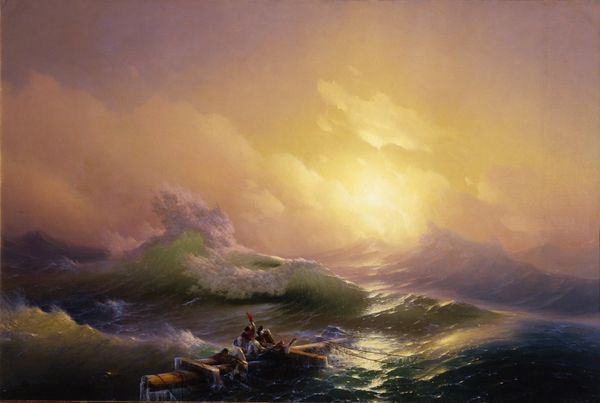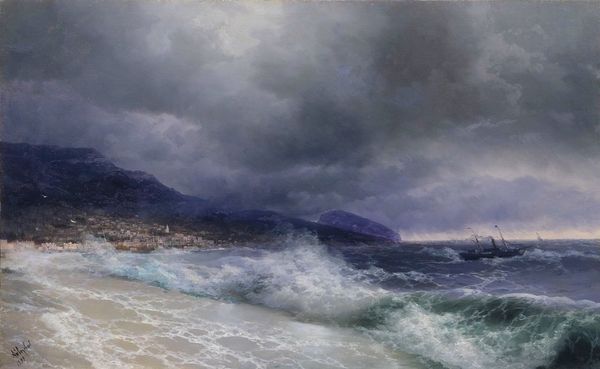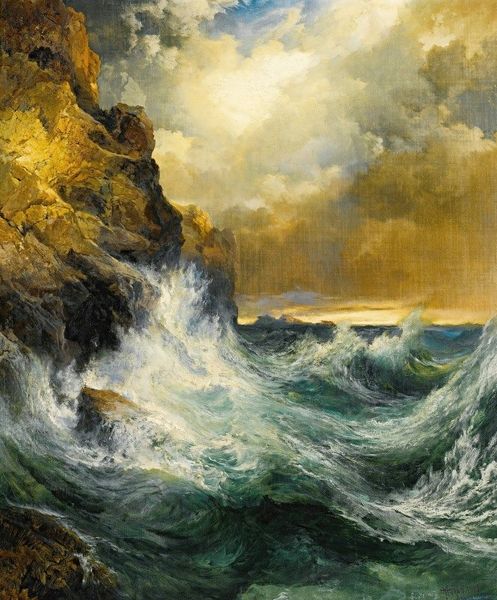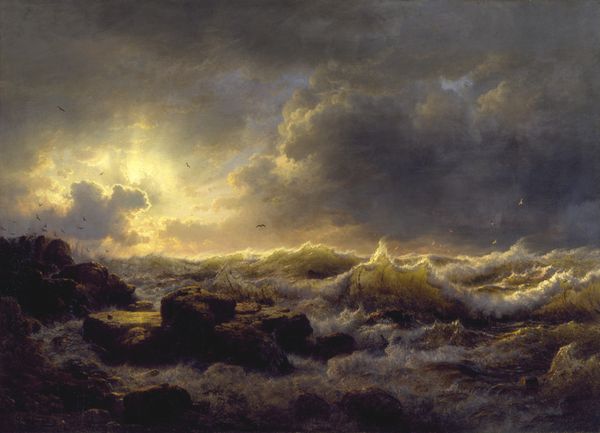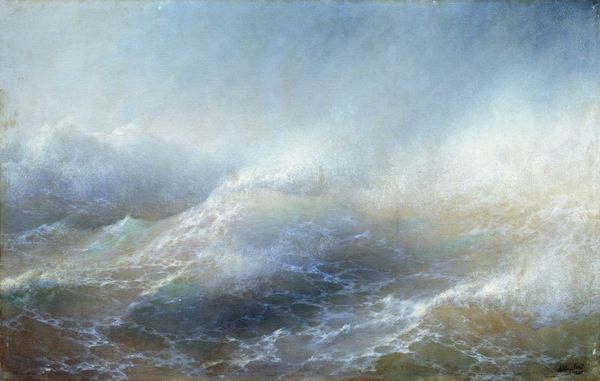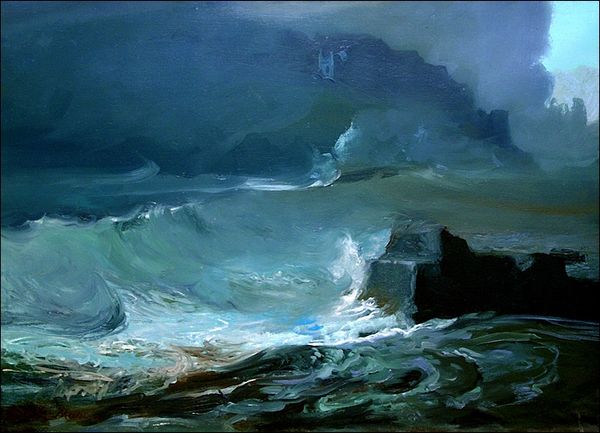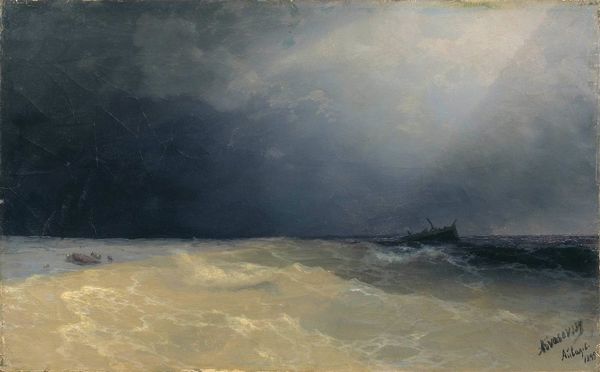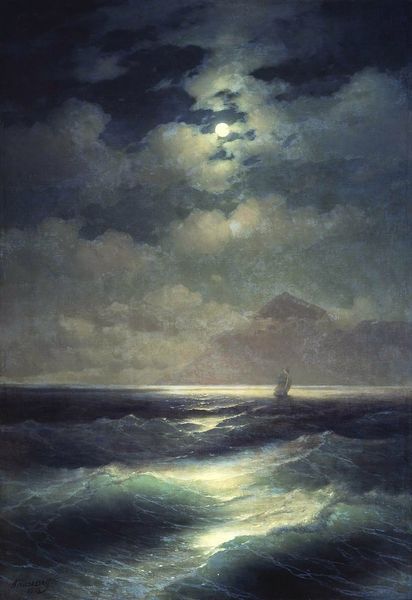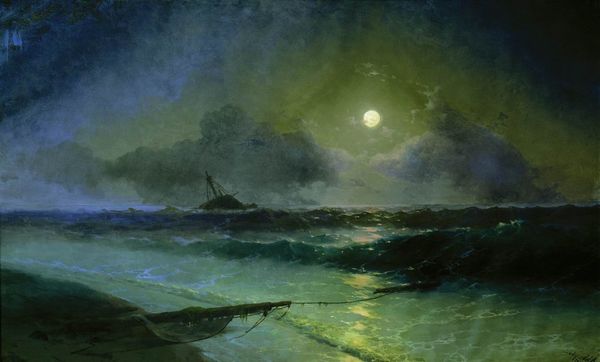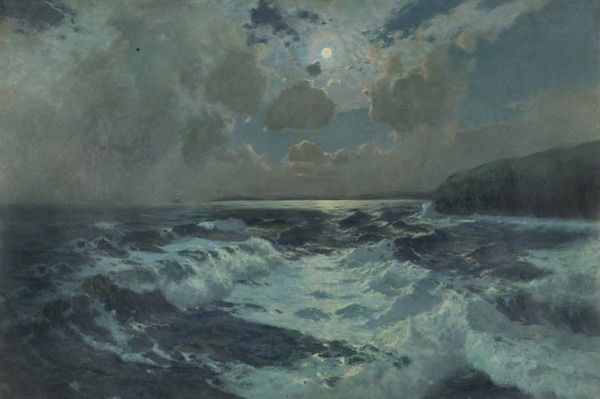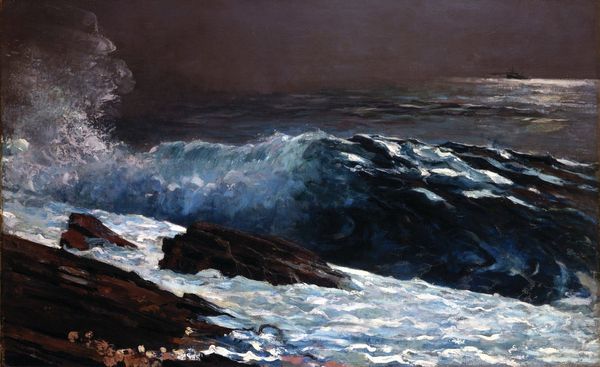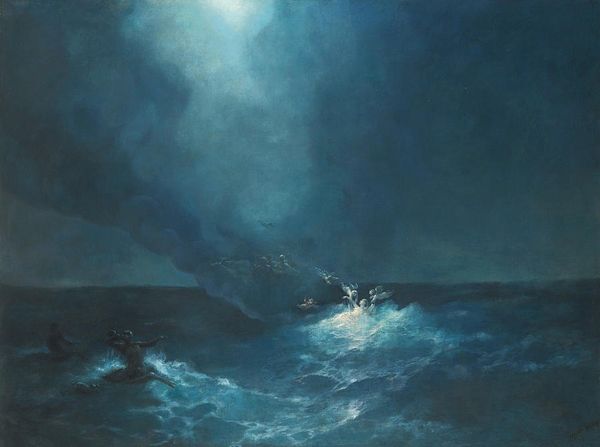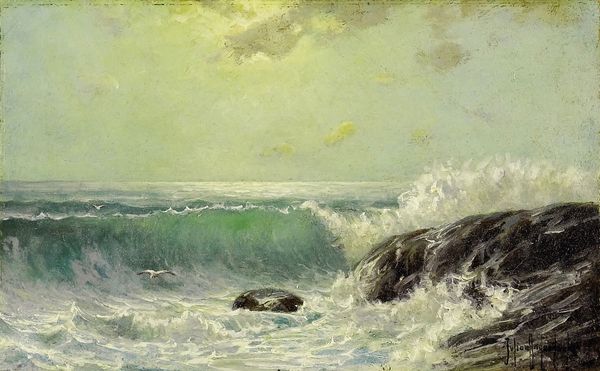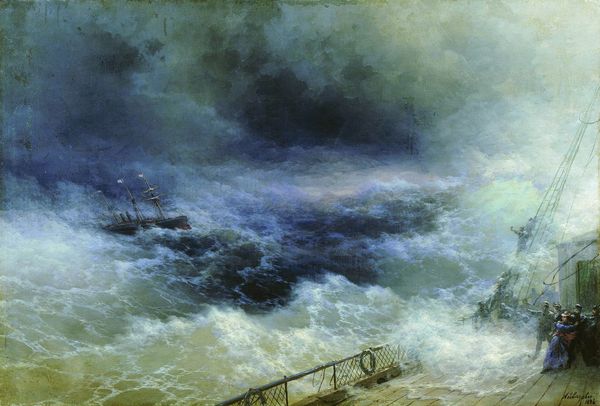
Copyright: Public domain
Editor: So this is "The Wave" painted by Ivan Aivazovsky in 1895. It's an oil painting that immediately gives me a sense of the sheer power of nature, but also a strange calm, almost like a dramatic stage. How do you interpret this work? Art Historian: It’s fascinating how you pick up on that stage-like quality. Aivazovsky certainly knew how to orchestrate drama. Waves, for him, were powerful symbols, reflecting not just the forces of nature, but also the inner emotional landscapes of the human psyche. Consider the way the light breaks through the dark clouds - doesn't that evoke a sense of hope amidst chaos? Editor: Definitely! I hadn't thought about it that way, but the light does create a focal point, drawing you in even though the scene is so turbulent. Do you think he’s trying to tell us something specific with the imagery? Art Historian: Aivazovsky often embedded symbolic meaning in his seascapes. Notice the subtle suggestion of a shipwreck in the distance, almost swallowed by the landscape. Perhaps he’s hinting at the fragility of human endeavors against the backdrop of nature’s overwhelming power. But equally, it is crucial to recognise the symbol of resilience embodied in that same destructive ocean, life persisting where it may seem to have no cause. Editor: That’s a really interesting point about resilience. It reframes the whole painting for me. I guess the "wave" isn't just about destruction; it's about the cyclical nature of things, always changing. Art Historian: Precisely! Consider, too, that Aivazovsky was deeply interested in Romanticism. Do you think the visual depiction of this sea links to the sense of sublime, or beauty tinged with terror that Edmund Burke explored? It would be remiss of me to assert whether his work aimed to align perfectly with existing theory; the most impactful artworks carry meaning whether intentional or not. Editor: It really does, the dramatic sky and imposing waves really showcase the feeling of awe, even a kind of spiritual feeling. I see so much more in this work now. Art Historian: And I see your insight blooming beautifully. These encounters reveal our ability to project ourselves onto these 'landscapes of the mind.'
Comments
No comments
Be the first to comment and join the conversation on the ultimate creative platform.
